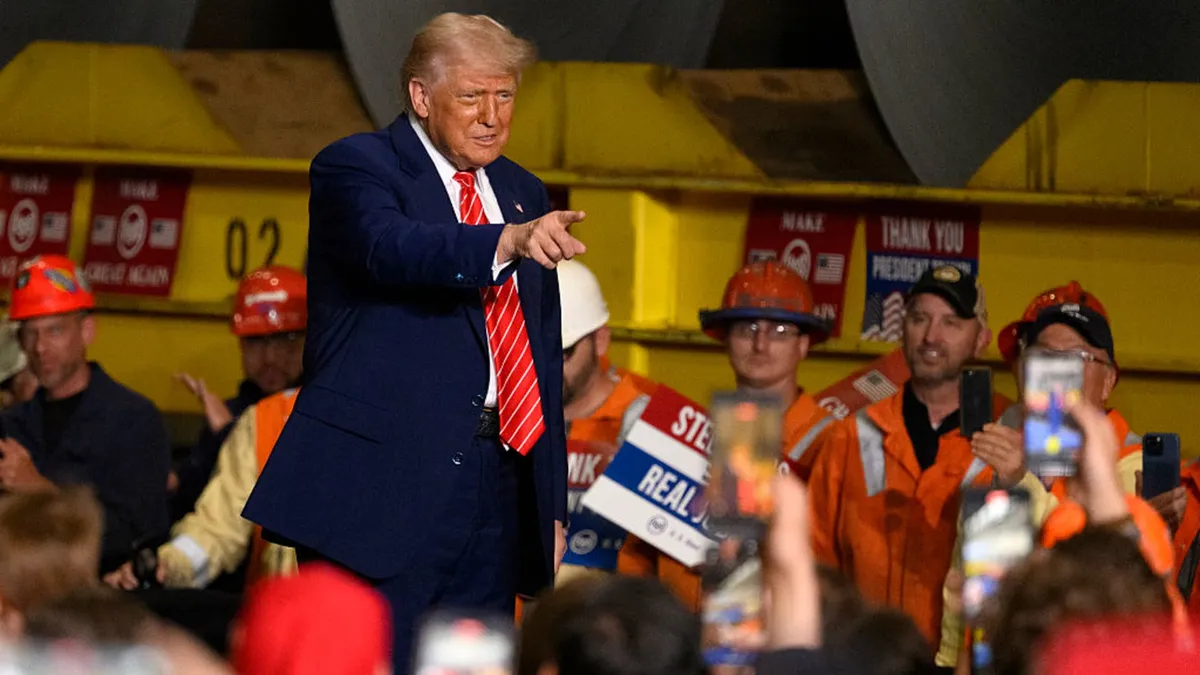
The European Union expressed strong disapproval on Saturday regarding President Donald Trump's recent decision to double tariffs on steel imports, a move that the EU warns could jeopardize ongoing negotiations aimed at resolving the escalating trade war. An EU spokesperson stated, "We strongly regret the announced increase of U.S. tariffs on steel imports from 25% to 50%," in a statement provided to NBC News.
This significant tariff hike is expected to add further uncertainty to the global economy, leading to increased costs for consumers and businesses on both sides of the Atlantic. The spokesperson elaborated that this decision not only impacts the steel industry but also creates rippling effects across various sectors reliant on industrial metals.
President Trump made the announcement during a rally at U.S. Steel in Pennsylvania, where he emphasized the impact of the new tariffs on manufacturers who depend on industrial metals for their production processes. The new import duties are scheduled to take effect on June 4, amplifying the pressure on these manufacturers.
Earlier this month, Trump hinted at approving a controversial deal between Nippon Steel and U.S. Steel, which he briefly highlighted during the rally. However, he clarified that this agreement was not yet finalized, leaving many in the industry uncertain about its future implications.
The EU had previously paused its countermeasures against the U.S. on April 14, allowing for a period of negotiations. However, the spokesperson indicated that the EU is ready to impose countermeasures in response to the latest U.S. tariff increase if negotiations do not yield a mutually acceptable solution. The European Commission is currently in the process of finalizing consultations on expanded countermeasures that could be enacted swiftly.
If no agreement is reached, existing and additional EU measures are set to automatically take effect on July 14, with the possibility of an earlier implementation if the circumstances necessitate such action. The ongoing tension between the EU and the U.S. over trade policies continues to evolve, affecting global trade dynamics.